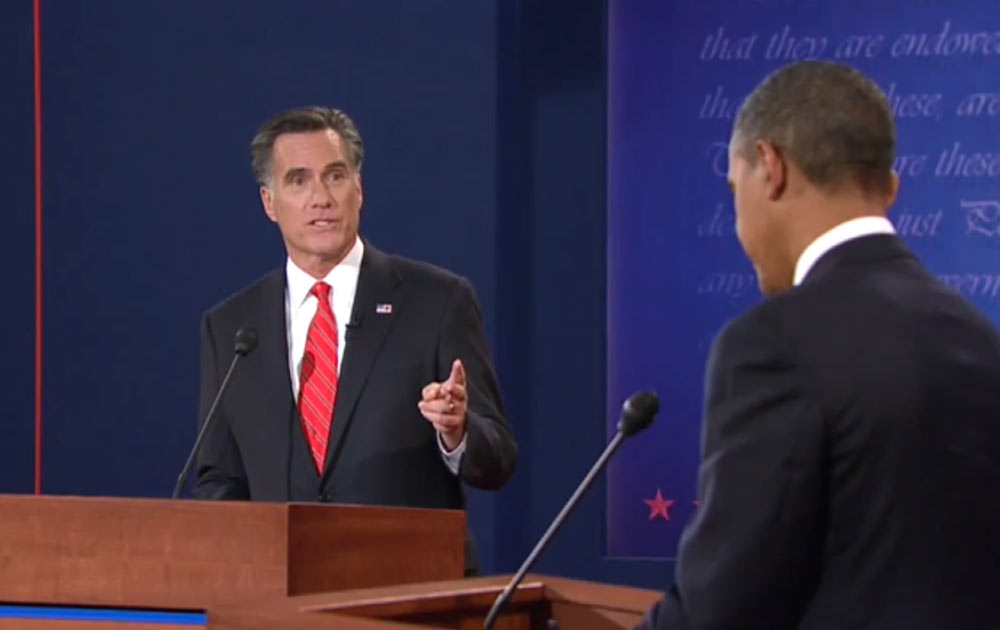What Presidential Debates Say About Our Culture

When Americans tune in to tonight's presidential debate, what will leave a lasting impression?
One researcher says superficial factors — such as speaking style, gesture, appearance and pre-packaged biography — are just as influential as what the candidate actually says, making a Hollywood-style spectator sport out of the presidential contest.
"It says a lot about our culture that we pay so much attention to the clothing, gestures and hairstyles of presidential candidates and to their performances in highly theatrical situations, like debates," Michael Lempert, a linguistic anthropologist at the University of Michigan, said in a statement.
"It's really the 'TMZ-ization' of politics. We've become habituated to this."
Along with University of Chicago anthropologist Michael Silverstein, Lempert has co-authored the new book, "Creatures of Politics: Media, Message, and the American Presidency" (September 2012, Indiana University Press). The two authors examine the creation of a candidate's all-important "message," which comes to life through a carefully choreographed public persona, they say.
"Rather than just being a chance to talk about the issues, the debates are also a form of theater that allows viewers to take the measure of the candidates, through their appearance, their pronunciation, their use of gestures, even their gaffes," Lempert explained. The debates also allow the public to size up a candidate's "authenticity," but even that can be constructed, the researchers said.
For example, former President George W. Bush's tendency to fumble language may have actually helped him out when pit against John Kerry in 2004. But the researchers suspect some of Bush's bloopers were contrived.
Sign up for the Live Science daily newsletter now
Get the world’s most fascinating discoveries delivered straight to your inbox.
"Kerry was, ironically, viewed as being the more patrician, based on his grammar and elocution," Silverstein said in a statement, characterizing Bush's bloopers as "deliberate efforts to seem real, like a regular person."
One specific gesture that viewers might look for in the debate tonight (Oct. 16) is President Barack Obama's "precision grip," when he presses his thumb and tip of his index finger together to signal that he is explaining the finer points of a topic he knows a lot about, Lempert said. The researchers observed that in his debate with the Republican nominee Mitt Romney earlier this month, Obama used the precision grip far less than he did in debates four years ago.
"Last time around, it looked like Obama lost his grip," Silverstein said. "Soon, we'll see if he's got it back."
Follow LiveScience on Twitter @livescience. We're also on Facebook & Google+.










